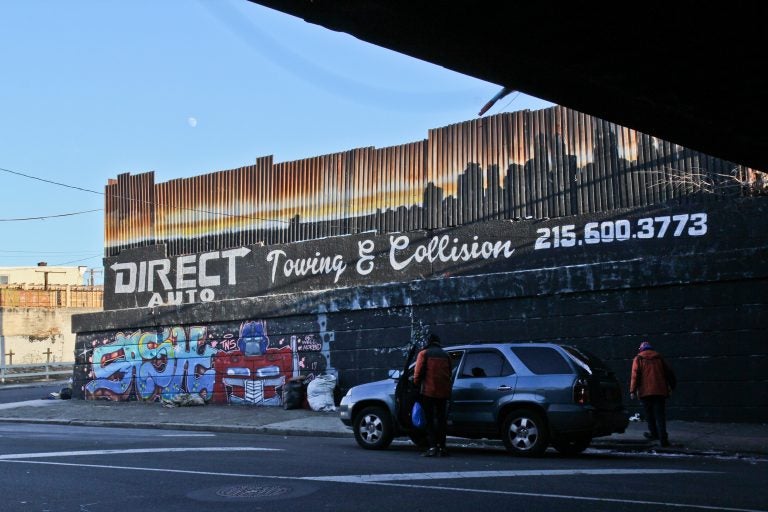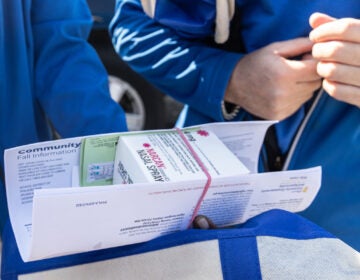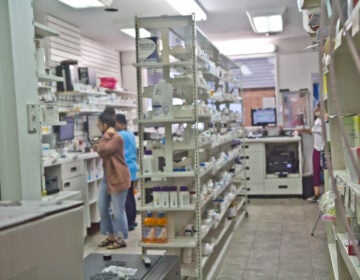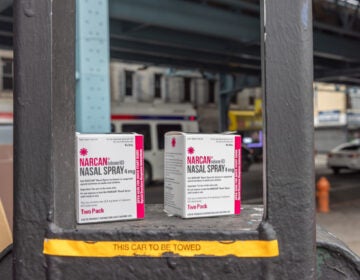Homeless shelter planned for opioid-afflicted Kensington won’t be ready this winter
The city promised in December it would open 30 more beds in the neighborhood by January, but city officials now estimate the space won’t open until late spring.

Luke Dunn and Nick Hale spend their winter days driving around Kensington trying to get homeless people into shelter. (Kimberly Paynter/WHYY)
A new shelter for people who are homeless and struggling with opioid addiction in Philadelphia’s Kensington neighborhood won’t be ready in time to bring more people in from the cold this winter.
The city promised in December it would open 30 more beds in the neighborhood by January, but neighborhood residents who have been urging the city to open a new shelter in Kensington said city officials now estimate the space won’t open until late spring. They said people are continuing to live in large numbers under railroad bridges along Lehigh Avenue in spite of the bitterly cold temperatures this winter.
“We really didn’t want people to be freezing to death underneath the train tracks,” said Laura Tepper, an 11-year resident of the neighborhood who started an online petition in support of the planned shelter.
City spokeswoman Alicia Taylor confirmed the new shelter won’t be ready until later than planned but said the city already has enough beds available citywide to serve the homeless population in Kensington. The city has also been operating an emergency “warming center” in the neighborhood where people can get overnight relief during recent cold spells that have triggered a Code Blue.
Tepper, 40, said the city needs to create more permanent shelter beds close to the neighborhood’s encampments of homeless drug users.
“They’re just not going to leave that security and that group,” Tepper said. She added that opioid dependency makes many reluctant to travel far away from where they buy the drugs, and risk going into withdrawal.
The city has funding available to open the shelter but hasn’t been able to find a location for the site or a provider to operate it, said residents who met with city officials about the project.
“The holdup is that nobody wants it in their backyard,” said Jamie Moffett, a neighborhood activist who has attended the meetings. “It’s a NIMBY thing.”
Taylor said the city is simply working to find an appropriate facility and provider for the new 30 shelter beds.
“There’s a lot to be negotiated for something like this,” she said. “We are looking and will continue to look. It’s something that we want to do and we think there is a need.”
Tepper’s petition has received more than 2,500 signatures so far.
WHYY is your source for fact-based, in-depth journalism and information. As a nonprofit organization, we rely on financial support from readers like you. Please give today.





